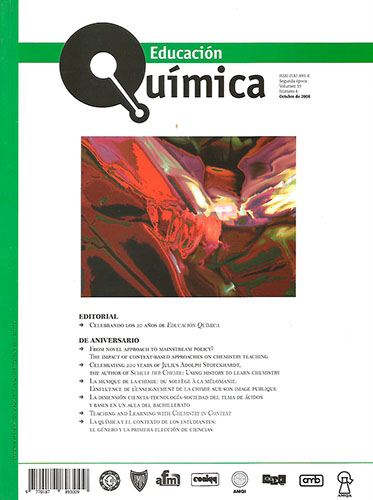From novel approach to mainstream policy? The impact of context-based approaches on chemistry teaching
Contenido principal del artículo
Resumen
This paper reports part of a study of the ways in which students everyday experiences are used in pre-university chemistry curricula in a centralised and a decentralised education system, in South Africa and England, respectively. The changing role of contextualisation over the last 15 years is explored, in the ideal, formal and perceived curriculum. Analysis of curriculum documents including examination papers and textbooks suggest that recent curricula make use of everyday contexts, as illustrations of chemical concepts, and less frequently as justifications for studying these concepts, or for application and synthesis of chemical knowledge. Discontinuities in the use of everyday experiences occur between ideal and formal curricula, or between the formal curriculum and textbooks in decentralised and centralised systems respectively. Meaningful contextualised assessment is problematic in a variety of curricula.
Detalles del artículo

Educación Química por Universidad Nacional Autónoma de México se distribuye bajo una Licencia Creative Commons Atribución-NoComercial-SinDerivar 4.0 Internacional.
Basada en una obra en http://www.revistas.unam.mx/index.php/req.
